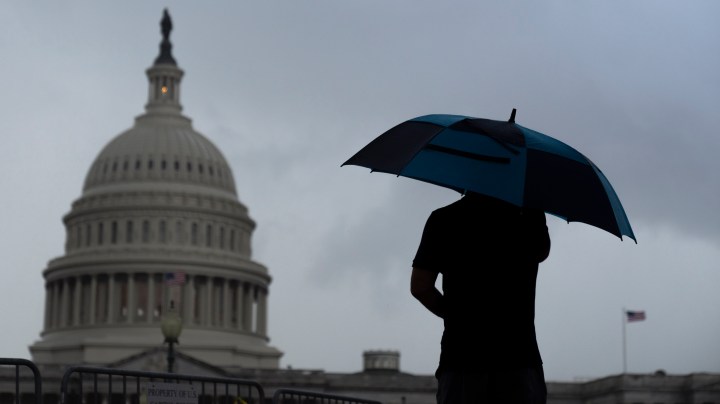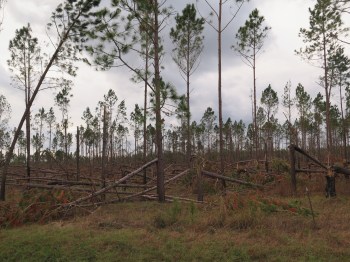
How did disaster aid get tangled up in the fight over the debt ceiling?
How did disaster aid get tangled up in the fight over the debt ceiling?

The House of Representatives passed a bill Tuesday night designed to keep the government open until Dec. 3, while lawmakers work out the details of government funding for the year.
The bill also suspends the debt ceiling … so, you know, the economy doesn’t collapse.
On their own, those are two pretty serious items. But the bill also includes additional funding to help Afghan evacuees — $6.3 billion — and almost $29 billion for disaster aid.
Why is it, though, that funding for natural disasters seems to get wrapped up in this kind of drama fairly often these days?
The federal government budgets for disaster response every year, but “here’s the thing: For a really long time, we’ve been regularly overrunning the disaster relief fund,” said Laura Blessing, a senior fellow at Georgetown’s Government Affairs Institute. “There are just so many more disasters that get declared and that money is needed.”
Now, in the “Schoolhouse Rock!” version of Congress, when there’s a need for extra disaster aid, there’d be a bill to “appropriate the funds,” in Washington-speak, that would make its way through Capitol Hill.
But things don’t really work that way anymore, said Peter Van Doren, a senior fellow at the Cato Institute.
“Now, it’s just, lately, Congress — because it’s so divided and in gridlock — finds it convenient to do lots of things through these large, must-pass budget bills of one sort or another,” Van Doren said.
Must-pass legislation, like this government funding bill, is supposed to be done at the end of the fiscal year, which happens to come up around the peaks of the hurricane and wildfire seasons.
“The nature of nature and then the nature of the budgetary calendar coincide in a bad way,” Van Doren said.
Because members of Congress want to prove to constituents that, in an emergency, they can get federal help to them quickly, and when they don’t, “state and local governments are unable to fully put their plans in place and act,” said Daniel Teles, a senior research associate at the Urban Institute. “And that, therefore, slows down their ability to then distribute funds.”
That, in turn, puts even more pressure on members of Congress to pass legislation they might otherwise balk at.
There’s a lot happening in the world. Through it all, Marketplace is here for you.
You rely on Marketplace to break down the world’s events and tell you how it affects you in a fact-based, approachable way. We rely on your financial support to keep making that possible.
Your donation today powers the independent journalism that you rely on. For just $5/month, you can help sustain Marketplace so we can keep reporting on the things that matter to you.

















